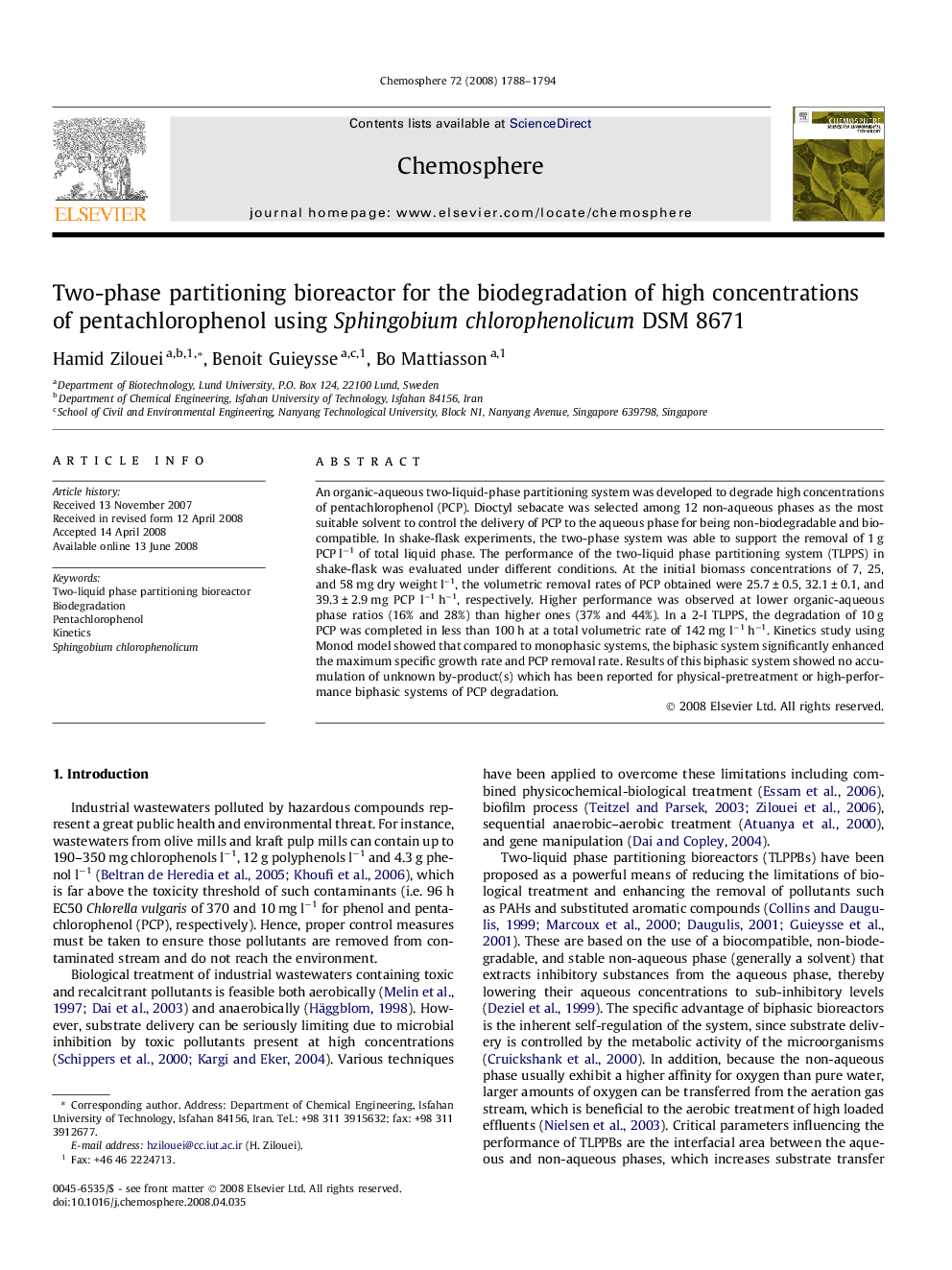| Article ID | Journal | Published Year | Pages | File Type |
|---|---|---|---|---|
| 4413435 | Chemosphere | 2008 | 7 Pages |
An organic-aqueous two-liquid-phase partitioning system was developed to degrade high concentrations of pentachlorophenol (PCP). Dioctyl sebacate was selected among 12 non-aqueous phases as the most suitable solvent to control the delivery of PCP to the aqueous phase for being non-biodegradable and biocompatible. In shake-flask experiments, the two-phase system was able to support the removal of 1 g PCP l−1 of total liquid phase. The performance of the two-liquid phase partitioning system (TLPPS) in shake-flask was evaluated under different conditions. At the initial biomass concentrations of 7, 25, and 58 mg dry weight l−1, the volumetric removal rates of PCP obtained were 25.7 ± 0.5, 32.1 ± 0.1, and 39.3 ± 2.9 mg PCP l−1 h−1, respectively. Higher performance was observed at lower organic-aqueous phase ratios (16% and 28%) than higher ones (37% and 44%). In a 2-l TLPPS, the degradation of 10 g PCP was completed in less than 100 h at a total volumetric rate of 142 mg l−1 h−1. Kinetics study using Monod model showed that compared to monophasic systems, the biphasic system significantly enhanced the maximum specific growth rate and PCP removal rate. Results of this biphasic system showed no accumulation of unknown by-product(s) which has been reported for physical-pretreatment or high-performance biphasic systems of PCP degradation.
